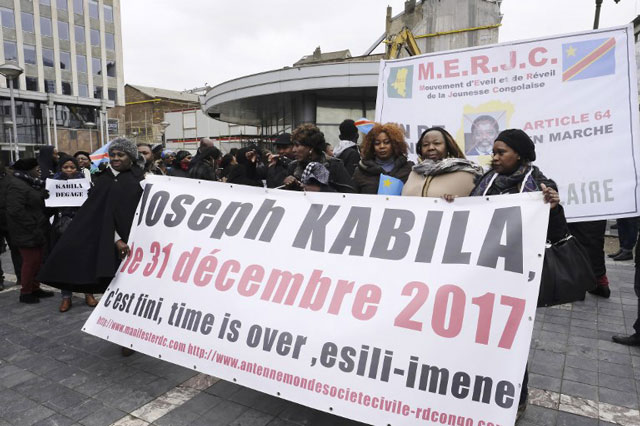
Paris, France | AFP | Africa’s second largest country, Democratic Republic of Congo, is rich in raw materials and minerals but cursed by deadly violence, insurgencies, graft and poverty.
Presidential elections were scheduled for Sunday, but electoral authorities delayed the vote by seven days until December 30 after a warehouse fire destroyed electronic voting machines needed for the capital.
Here are some facts about the country.
– Vast country –
Eighty times the size of its former colonial master Belgium, the DRC covers 2.3 million square kilometres (919,595 square miles) in the middle of Africa, behind only Algeria in area on the continent.
The majority of its population of 81.3 million people (World Bank, 2017) is Catholic.
As well as having access to the Atlantic Ocean it shares its borders with nine other countries:
Angola, Burundi, Central African Republic, Congo-Brazzaville, Rwanda, South Sudan, Tanzania, Uganda and Zambia.
It is a nation plagued by conflict and disunity. While the official language is French, it has four indigenous national and 200 vernacular languages, hampering the forging of a national identity since independence in 1960.
– Regional war –
The first democratically elected prime minister, independence hero Patrice Lumumba, was assassinated in 1961.
Army strongman Mobutu Sese Seko grabbed power in a coup in 1965, imposed the name Zaire and set up a dictatorial kleptocracy that lasted 32 years.
Rebel Laurent-Desire Kabila launched an armed campaign to overthrow Mobutu that drew in neighbouring countries. He seized power in 1997, renaming the country after the mighty Congo river.
Kabila expelled the forces of his Rwandan and Ugandan allies, sparking a conflict in the Kivu border region in which several African countries became involved.
The 1998-2003 conflict caused millions of deaths from violence, disease and starvation, called by some Africa’s “Great War”.
Many militia groups remain active in Kivu — divided into North and South provinces — which continues to suffer massacres, widespread rape and other atrocities.
Central Kasai province is another violence hotspot, with around 3,000 people killed in less than a year of unrest that erupted after soldiers killed a tribal chief in 2016.
– New political crisis –
Kabila’s son Joseph inherited the presidency after his father was killed by a bodyguard in 2001.
He went on to win elections in 2006, the first free polls since independence, and a second term in 2011.
Kabila was meant to step down in 2016 but refused, prompting demonstrations met with bloody crackdowns.
After various delays, presidential elections have been set for December 23, 2018.
– Disease and rape –
Aid agencies have accused all sides in DRC conflicts of using rape as a weapon of war to terrorise local populations.
South Kivu-based gynaecologist Denis Mukwege won the 2018 Nobel Peace Prize for his work with women who have been victims of sexual abuse.
The country also suffers from Ebola, the hemorrhagic fever named after a river in the north of the country, and cholera.
 The Independent Uganda: You get the Truth we Pay the Price
The Independent Uganda: You get the Truth we Pay the Price





